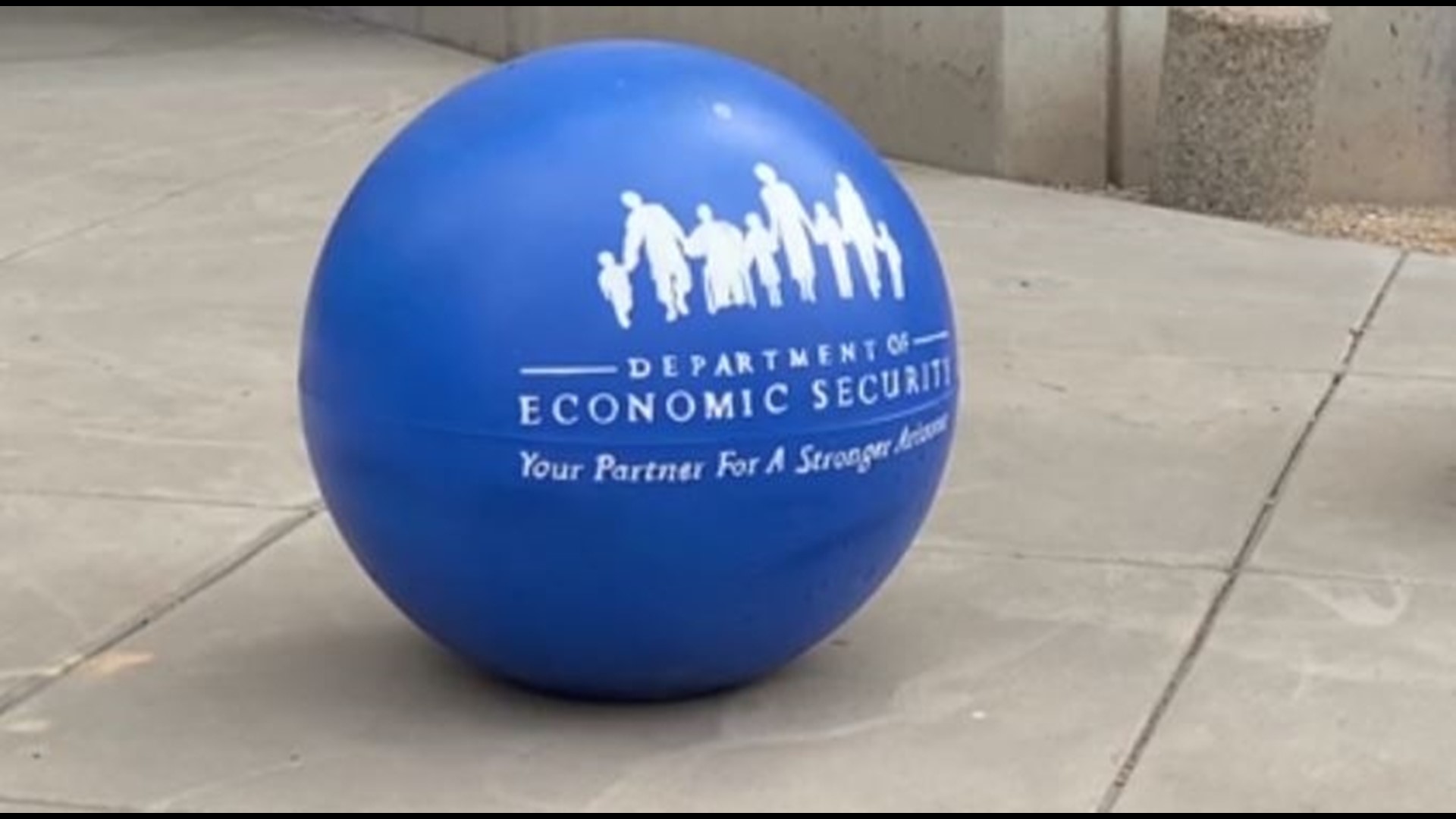ARIZONA, USA — Arizona's Department of Economic Security flagged 56,000 Arizonans as "non-fraud overpayments," meaning they received benefits that DES now wants back.
Eric Elliott was told to pay back $9,200, but an administrative law judge said the department made several mistakes in his case and doesn't have to pay.
"The agency is a disaster; we've known that since the program started. So fight it," Elliott said.
Elliott won his appeal, but countless more could face letters demanding they pay back benefits without clear answers from DES as to why.
12News last spoke with DES Director Michael Wisehart back in July 2020. Since then, our requests have either been ignored or denied. In recent weeks, 12News has requested a time to interview Wisehart regarding overpayments and other related issues, but all of those requests have been ignored by spokespeople for the department.
State Representative Mitzi Epstein (D-District 18)has been vocal about the issues DES has had throughout the pandemic.
"There are plenty out there who have simply filled in all the forms, they followed the rules, they should be getting the waivers," Epstein said.
The U.S. Department of Labor said states could give waivers in seven different scenarios for people DES overpaid through no fault of the claimants.
That guidance was released back in February.
A DES spokesperson told 12News in a statement that the department started working on waivers when the letter was issued. As of last week, those waivers are set to be implemented in the coming weeks.
It's unclear how many people have received a notice demanding money back that was classified as a "non-fraud overpayment." DES, through an emailed statement, has only said: "most" haven't been issued as the department looks into the waiver process.
"We're having a meeting tomorrow (Tuesday) with US Department of Labor and others to figure out what we can do about this problem," Epstein said.
State Senator David Livingston (R-District 22) said leniency is needed in these "non-fraud" cases.
"Sometimes you do a payment plan. Sometimes you waive them. Every situation's a little different. But for the non-fraud cases, we should be more lenient. For the fraud cases, we should be much tougher," Livingston said.
Epstein and Livingston have said that if people have had issues with "non-fraud" overpayments, they should contact their state legislators.
DES claims that they've been focused on dealing with fraud.
The State Auditor General previously reported DES paid out $4.4 billion in fraudulent pandemic-era unemployment benefits.
"DES did not put all critical identity verification or other anti-fraud measures in place before paying federal CARES Act unemployment insurance (UI) benefits," the report states in part.
The $133 million was overpaid to fraudulent claims, according to DES. Those were both pandemic unemployment assistance claims and regular unemployment insurance claims.
"If somebody has committed fraud against the state, we need to fix it," Livingston said.
"We certainly want them to be very rigorous in their pursuit of making sure that anybody who has committed fraud is prosecuted and not given a waiver," Epstein said.
Livingston suggested fraud could be further addressed with help from the state legislature.
“We need to have one of the agencies such as ADOA (Arizona Department of Administration), cross reference all the data points that the state has: name, date of birth, social security number, voter ID, driver's license ID and cross-reference those to issue any type of benefits,” Livingston said.
Epstein echoed comments she's made in the past calling for a performance audit of the department.
Livingston said he'd need more information from DES to decide if one's necessary.
"I think what we need to do in committee is have them come and testify. Explain to us what they've done and haven't done so we can determine what we need to do next," Livingston said.
According to DES, nearly 5,800 people have filed appeals after being classified as an overpayment. It's unclear what kind of overpayment those people were classified as.
A spokesperson for DES also said in an emailed statement that DES had cut staff in certain areas, citing decreasing federal funds.
Up to Speed
Catch up on the latest news and stories on the 12News YouTube channel. Subscribe today.

